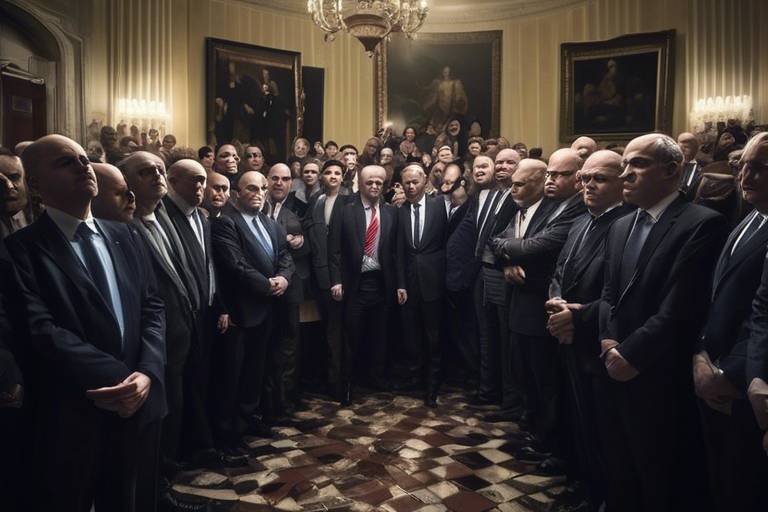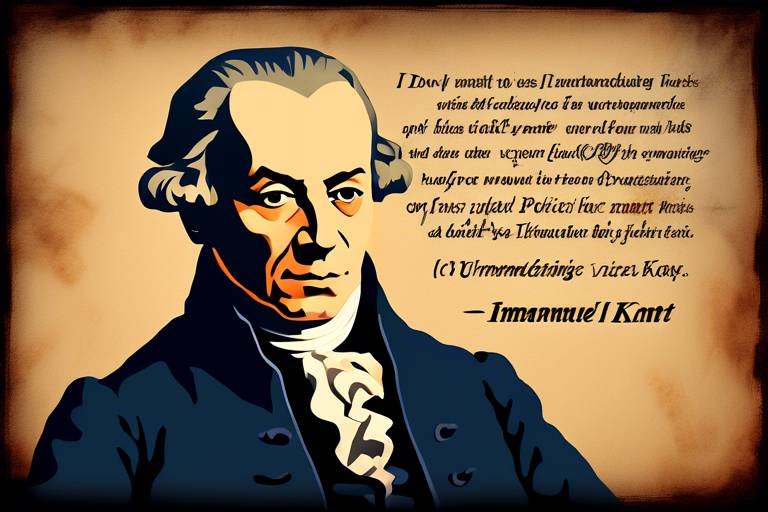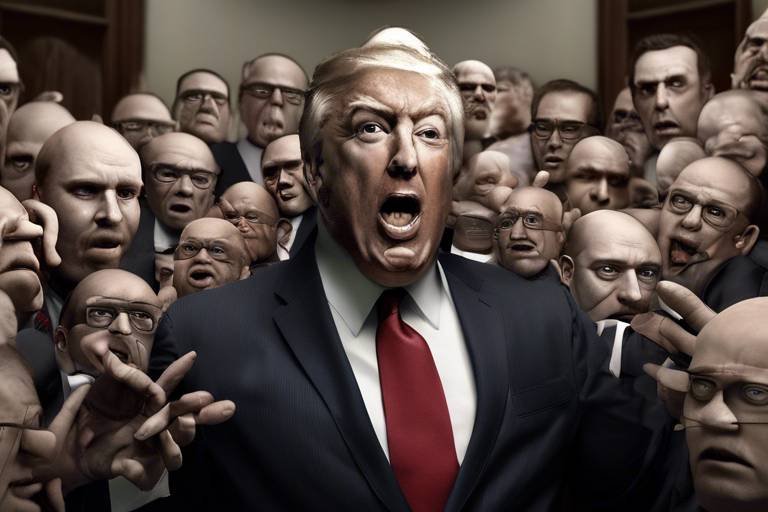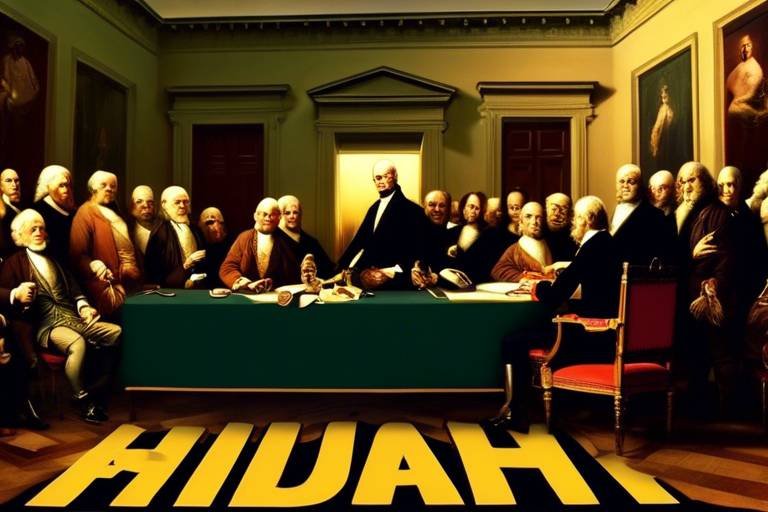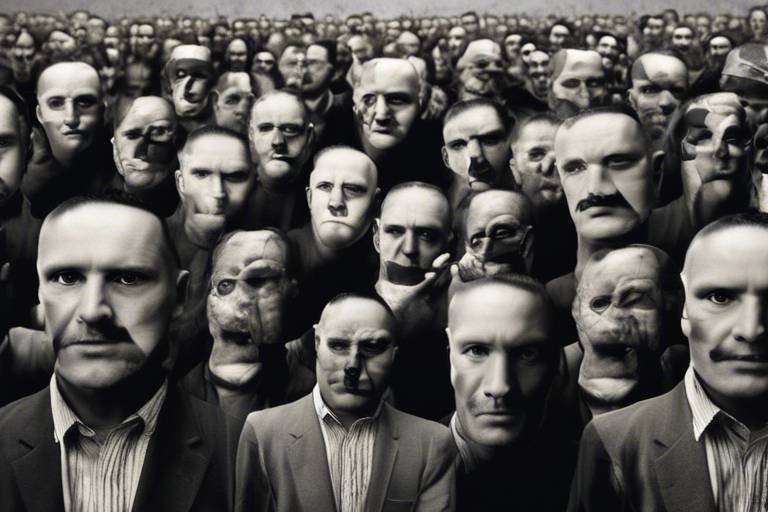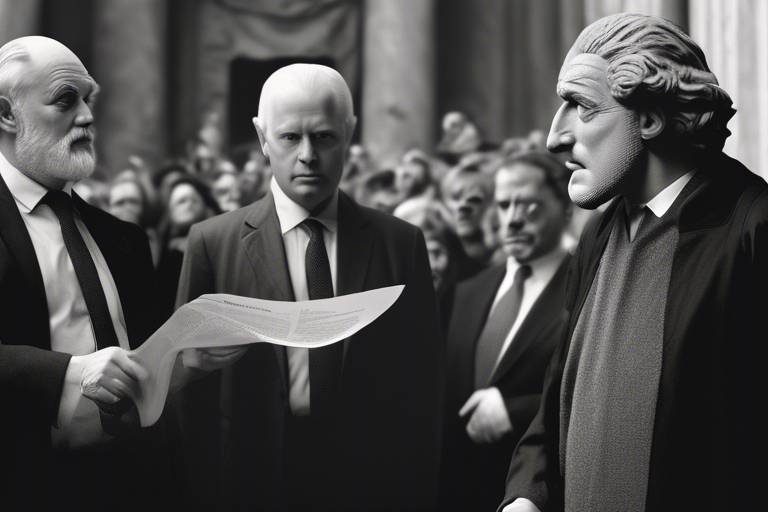Understanding Totalitarianism Through Philosophy
Totalitarianism is a term that often evokes images of oppressive regimes and authoritarian rule, but what lies beneath this ominous surface? To truly grasp the essence of totalitarianism, we must delve into its philosophical roots, exploring how ideas can shape political landscapes and influence societal norms. This article aims to peel back the layers of totalitarian thought, revealing the intricate interplay between philosophy and power. By examining the characteristics of totalitarian regimes, the historical context in which they arose, and the influential thinkers who laid the groundwork for such ideologies, we can better understand the implications of totalitarianism on society.
At its core, totalitarianism is defined by a concentration of power that seeks to control not only the political sphere but also the economic, social, and cultural dimensions of life. Picture a puppet master pulling the strings of every aspect of existence, where individual freedoms are sacrificed on the altar of the collective good. In this framework, dissent is not merely discouraged; it is actively suppressed. The state becomes the ultimate authority, dictating not just laws but also beliefs, values, and even thoughts. This pervasive control often leads to a society where citizens are more like cogs in a machine than individuals with unique identities.
Understanding totalitarianism requires us to examine the philosophical ideologies that have historically supported such systems. Thinkers like Hegel and Marx have had a profound impact on the justification of absolute state power. Hegel, with his emphasis on the state as the embodiment of rationality and freedom, laid a philosophical foundation that would later be manipulated to prioritize collective over individual rights. Meanwhile, Marx's ideas about class struggle provided a framework that could be twisted to legitimize authoritarian rule under the guise of revolution.
As we embark on this exploration, it's essential to recognize that the implications of totalitarianism extend beyond the confines of political theory. They seep into the very fabric of society, influencing how individuals perceive their roles within a community and the extent of their freedoms. In this article, we will not only dissect the philosophical underpinnings of totalitarianism but also examine real-world examples, such as Nazi Germany and Stalinist Russia, where these ideas were operationalized with devastating effects.
By the end of our journey, we hope to illuminate the dark corners of totalitarian thought, providing insights into how philosophy can both inspire and justify the most extreme forms of governance. Are we, as a society, aware of the philosophical undercurrents that can lead to such oppressive systems? This question is not only relevant but crucial for understanding the dynamics of power and freedom in our world today.
- What is totalitarianism?
Totalitarianism is a political system characterized by centralized control by an autocratic authority, where the state seeks to regulate every aspect of public and private life.
- Who were the key philosophers that influenced totalitarian thought?
Key philosophers include Georg Wilhelm Friedrich Hegel and Karl Marx, whose ideas about the state, freedom, and class struggle have been used to justify totalitarian regimes.
- Can totalitarianism exist in modern societies?
While totalitarianism may not manifest in its purest form today, elements of it can be observed in various governments that suppress dissent and control public life.
- What are some historical examples of totalitarian regimes?
Notable examples include Nazi Germany and Stalinist Russia, where philosophical ideas were operationalized to justify oppressive governance.
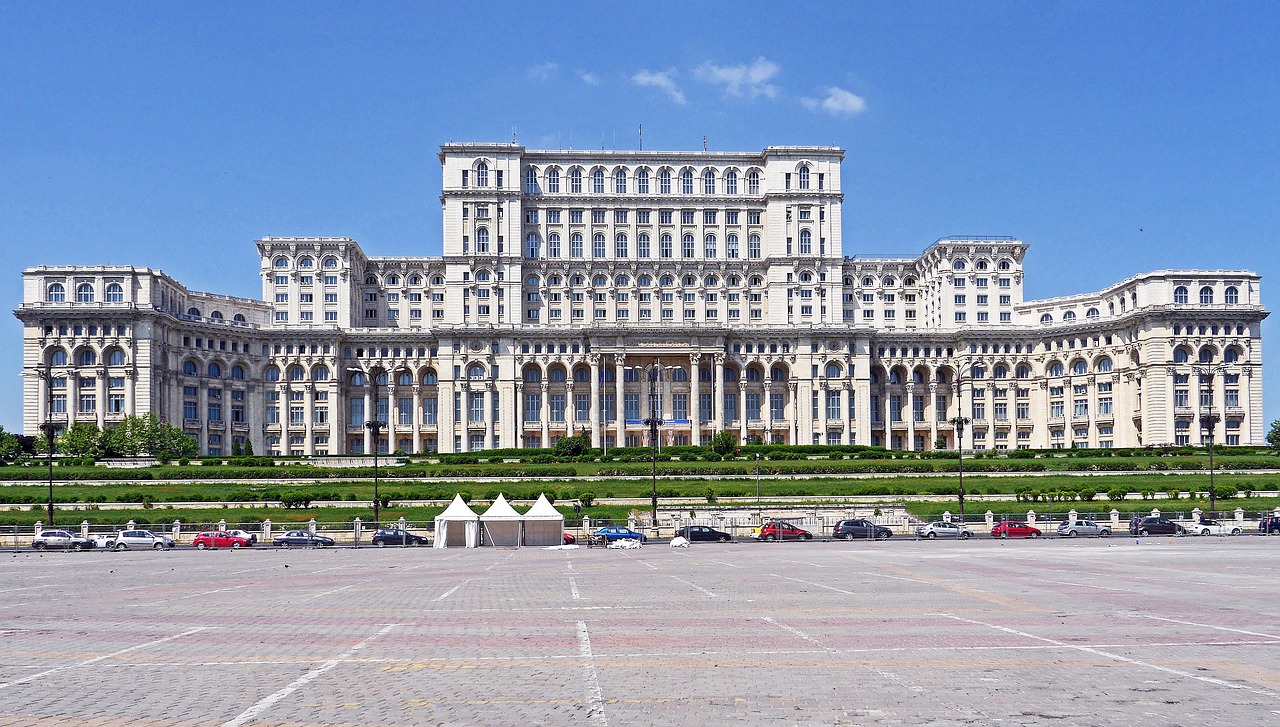
The Nature of Totalitarianism
Totalitarianism is a complex and multifaceted political system that seeks to exert total control over the lives of its citizens. At its core, a totalitarian regime is characterized by the concentration of power in a singular authority, often embodied in a dictator or a ruling party. This concentration of power leads to the suppression of dissent, where any form of opposition is not just discouraged but actively eradicated. Imagine living in a world where your thoughts, actions, and even your beliefs are monitored and manipulated by the state. It’s a chilling thought, isn't it? In this environment, individual freedoms are sacrificed at the altar of state control, as the government aims to shape society according to its ideology.
One of the defining features of totalitarianism is its ability to infiltrate various aspects of life. From education to media, and even personal relationships, the regime seeks to mold every facet of society to align with its objectives. This pervasive control can be likened to a spider weaving a web, ensnaring individuals in a complex network of surveillance and propaganda. The state often employs a range of tools, including censorship, indoctrination, and state-sponsored violence, to maintain its grip on power. The result is a society where fear is a constant companion, and compliance is often the only means of survival.
Moreover, totalitarian regimes typically promote an official ideology that glorifies the state and its goals while dehumanizing those who oppose it. This ideology serves as a unifying force for the regime, creating a collective identity that is often rooted in nationalism, socialism, or other extreme beliefs. For example, in Nazi Germany, the ideology was steeped in racial superiority, while in Stalinist Russia, it revolved around the idea of a classless society. In both cases, the state used these ideologies to justify its actions, painting dissenters as enemies of the people.
To further illustrate the nature of totalitarianism, let’s break down its key characteristics:
- Concentration of Power: Power is centralized in a single leader or party, eliminating checks and balances.
- Suppression of Dissent: Any opposition is met with severe consequences, including imprisonment or worse.
- Control Over Society: The regime seeks to control education, media, and even personal relationships to ensure conformity.
- Official Ideology: A state-sponsored ideology is promoted, often at the expense of truth and individual freedoms.
In conclusion, totalitarianism is not merely a political system; it's a pervasive force that seeks to dominate every aspect of human life. By understanding its nature, we can better comprehend the implications it has on society and the individual. It serves as a stark reminder of the fragility of freedom and the importance of vigilance in protecting our rights.
- What is totalitarianism? Totalitarianism is a political system where the state seeks to control every aspect of public and private life.
- How does totalitarianism suppress dissent? It employs censorship, propaganda, and violence to eliminate opposition and maintain control.
- Can totalitarianism exist in democratic societies? While totalitarianism is typically associated with dictatorships, elements of it can emerge in democratic societies if power becomes overly concentrated.
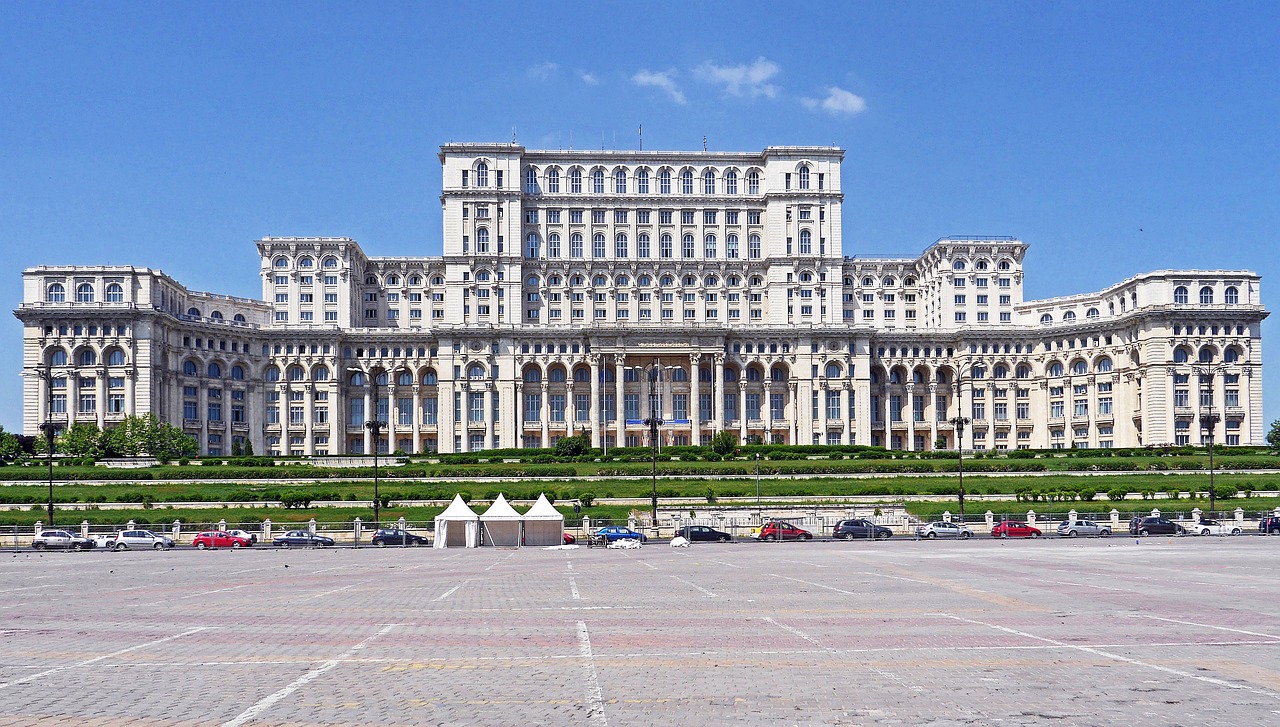
Philosophical Roots of Totalitarian Thought
The philosophical roots of totalitarian thought are deeply embedded in the works of influential thinkers who shaped the way societies understand power, authority, and the role of the state. At the heart of this exploration are the contributions of philosophers like Georg Wilhelm Friedrich Hegel and Karl Marx, whose ideas have been interpreted and sometimes misinterpreted to support authoritarian regimes. Understanding these philosophical underpinnings provides crucial insights into how totalitarian systems justify their existence and actions.
One of the most significant aspects of totalitarian philosophy is the concentration of power. Totalitarian regimes often arise from a belief in an all-encompassing state that prioritizes the collective over the individual. This notion can be traced back to Hegel, who posited that the state embodies the ethical spirit of a nation. In his view, the individual's freedom is realized only through participation in the state. This idea can be manipulated to suggest that any dissent against the state is not just a personal failure but a betrayal of the collective good. In this framework, the state's authority becomes absolute, and any opposition is framed as a threat to societal harmony.
Moreover, Hegel's dialectical method plays a crucial role in understanding how totalitarian systems rationalize their actions. By emphasizing the conflict between opposing ideas, Hegelian dialectics can be used to justify the suppression of dissent. The state, seen as the ultimate realization of freedom, can argue that it must eliminate contradictions to achieve a higher unity. This leads to a dangerous justification for state overreach, where the ends are seen to justify the means, no matter how oppressive those means may be.
Transitioning to Marx, we find another layer of philosophical justification for totalitarianism. Marx's concept of class struggle has often been co-opted by totalitarian regimes to legitimize their authoritarian practices. The idea that history is driven by the conflict between classes can be manipulated to create a narrative where the ruling party positions itself as the vanguard of the oppressed. This can lead to extreme measures, including the suppression of any group deemed counter-revolutionary or bourgeois. In this context, totalitarianism can be framed as a necessary step towards achieving a classless society, even if it means trampling on individual rights and freedoms.
Both Hegel and Marx provide fertile ground for the development of totalitarian ideologies. Their philosophies, which emphasize the importance of the state and collective identity, can easily be twisted to justify the suppression of dissent and the concentration of power. However, it is essential to recognize that these interpretations are not the only ways to understand their works. Many scholars argue that both philosophers also contained elements that could support democratic ideals, emphasizing the need for a balanced approach to their writings.
In summary, the philosophical roots of totalitarian thought reveal a complex interplay between ideas of authority, freedom, and the state. Hegel's focus on the ethical role of the state and Marx's emphasis on class struggle provide a framework that can be manipulated to justify authoritarian rule. Understanding these philosophical foundations is crucial for recognizing how totalitarian regimes can arise and maintain power, often under the guise of promoting the collective good.
- What is totalitarianism? Totalitarianism is a political system where the state holds total authority over society and seeks to control all aspects of public and private life.
- How do Hegel and Marx influence totalitarian regimes? Hegel's ideas about the state and Marx's concept of class struggle provide philosophical justifications for concentrating power and suppressing dissent in totalitarian systems.
- Can Hegel and Marx's philosophies support democratic ideals? Yes, while their ideas have been used to justify totalitarianism, they also contain elements that can be interpreted to support democratic values and individual rights.

Hegel's Influence on Totalitarianism
When we dive into the philosophical realm of totalitarianism, one name that often surfaces is Georg Wilhelm Friedrich Hegel. His ideas about the state and individual freedom have been pivotal in shaping the theoretical foundations of totalitarian regimes. Hegel viewed the state as the ultimate expression of ethical life, which inherently places the collective above the individual. This perspective can be troubling because it sets the stage for justifying the suppression of individual rights in favor of what is deemed the 'greater good'.
Hegel's dialectical method plays a crucial role in this discussion. Through dialectics, he proposed that history unfolds through a process of thesis, antithesis, and synthesis. This means that conflict is not just inevitable but necessary for progress. In totalitarian contexts, this method can be manipulated to rationalize the state's overreach. For instance, the state may present itself as the thesis, with any dissent as the antithesis that must be suppressed to achieve a higher synthesis—often equated with national unity or ideological purity. The troubling part? This can lead to a cycle where the state justifies increasingly authoritarian measures under the guise of historical necessity.
Furthermore, Hegel's interpretation of freedom is complex and often contradictory. He argued that true freedom is found not in the absence of constraints but in the alignment with the rational will of the state. This notion can be dangerously twisted by totalitarian regimes, which claim that their oppressive policies are necessary for the realization of freedom. In practice, this translates to a situation where individuals are coerced into compliance, all while being told they are acting in their own best interest. The irony is palpable: freedom becomes a tool for oppression.
To illustrate Hegel's influence, consider how totalitarian states often employ rhetoric that echoes his philosophical ideals. They might argue that:
- The state embodies the collective will of the people.
- Individual rights must be sacrificed for national security.
- Opposition is a threat to the progress of society.
This manipulation of Hegelian thought showcases how philosophical ideas can be repurposed to justify authoritarian practices. As we explore these themes, it becomes clear that Hegel's legacy is not just academic; it has real-world implications that continue to resonate in contemporary discussions about state power and individual rights.
In summary, Hegel's philosophical contributions have significantly influenced the development of totalitarian thought. His emphasis on the state as the embodiment of ethical life and his dialectical method provide a framework that can easily be exploited by authoritarian regimes. Understanding this influence is crucial for recognizing how philosophical ideas can shape political realities, often with dire consequences for individual freedoms.
- What is totalitarianism? Totalitarianism is a political system where the state holds absolute power over all aspects of public and private life, often characterized by the suppression of dissent and the control of various societal sectors.
- How does Hegel's philosophy relate to totalitarianism? Hegel's philosophy emphasizes the collective over the individual and presents the state as the ultimate realization of ethical life, which can be manipulated to justify authoritarian practices.
- What are the implications of Hegel's ideas on individual freedom? Hegel's view that true freedom is found in alignment with the state can lead to the justification of oppressive measures under the guise of promoting the greater good.
- Can Hegel's ideas still be relevant today? Yes, Hegel's ideas continue to influence contemporary political thought and discussions around state power, individual rights, and the justification of authority.
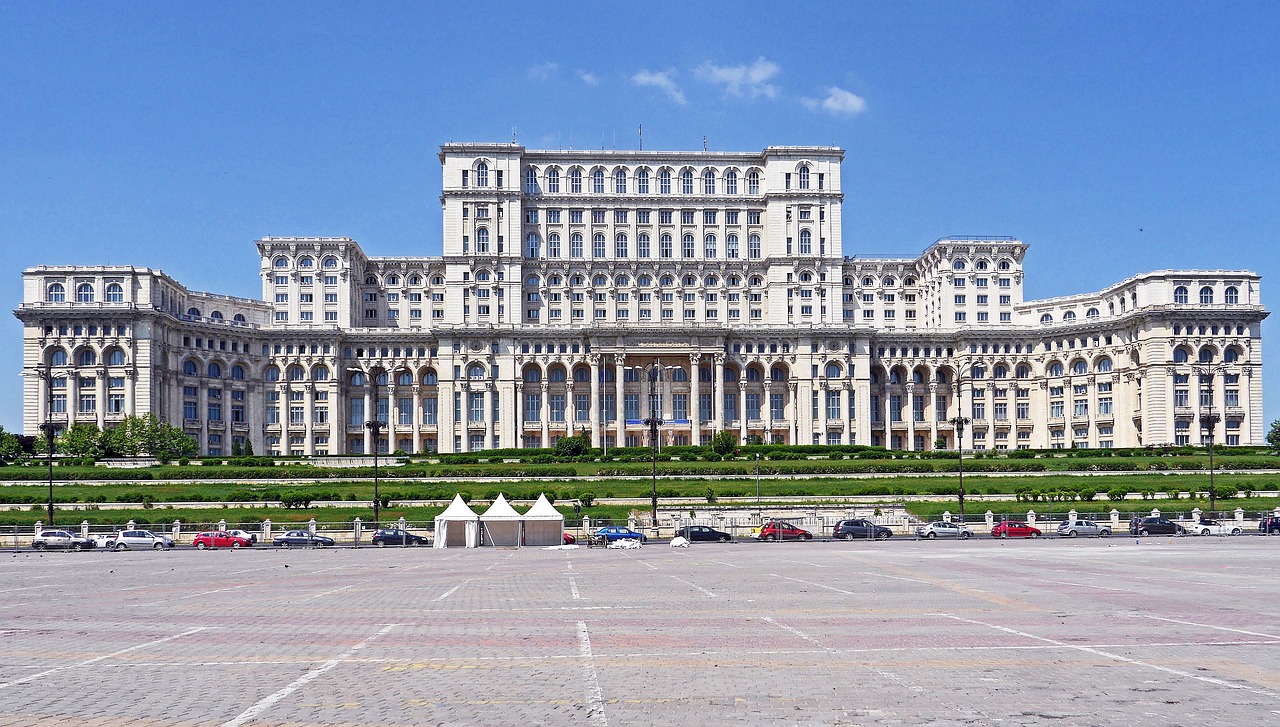
Dialectics and State Power
The concept of dialectics, as developed by Georg Wilhelm Friedrich Hegel, serves as a crucial framework for understanding state power within totalitarian regimes. At its core, dialectics is the art of reasoning through contradictions, suggesting that progress arises from the conflict of opposing forces. This philosophical method posits that every thesis (an idea or state of affairs) inevitably encounters an antithesis (a contradiction or opposition), leading to a synthesis, which is a new understanding or state that reconciles the two. In the context of state power, this dialectical process can be manipulated to justify the expansion and consolidation of governmental authority.
In totalitarian regimes, the state often positions itself as the embodiment of the collective will, arguing that individual freedoms must be subordinated to the needs of the whole. This can be seen as a form of Hegelian synthesis, where the state emerges as the ultimate arbiter of societal conflicts. The government asserts that by resolving these contradictions, it is not only maintaining order but also progressing toward a higher state of freedom. However, this interpretation of freedom is paradoxical; it often equates the absence of dissent with the presence of liberty, effectively redefining freedom to exclude any form of opposition.
Moreover, totalitarian leaders frequently employ dialectical reasoning to legitimize their authority. They may argue that the state must take drastic measures to combat perceived threats, framing these actions as necessary for the greater good. This creates a cycle where the state justifies its overreach by claiming it is acting to prevent chaos or instability. Such reasoning can lead to a situation where the state’s power is not only accepted but revered as a protector of societal harmony, despite the oppressive methods employed to maintain that harmony.
To illustrate this further, consider the following table that outlines the dialectical relationship between individual rights and state authority in totalitarian contexts:
| Dialectical Element | Individual Rights | State Authority |
|---|---|---|
| Thesis | Rights of the individual | Authority of the state |
| Antithesis | Challenges to state power | State's need to maintain order |
| Synthesis | Subordination of individual rights for collective security | Expanded state authority justified as necessary |
In essence, the dialectical method provides a potent tool for totalitarian regimes to rationalize their actions. By framing the struggle between individual rights and state authority as a necessary conflict, these regimes can perpetuate their power while simultaneously presenting themselves as the protectors of societal order. The danger lies in the fact that this philosophical justification can obscure the reality of oppression, leading citizens to accept authoritarian measures as essential for their own safety and freedom.
As we reflect on the implications of Hegelian dialectics within totalitarian frameworks, it's essential to recognize the thin line between legitimate governance and oppressive rule. The manipulation of dialectical reasoning can create an environment where dissent is not only discouraged but actively suppressed, all under the guise of protecting the collective. This philosophical underpinning thus reveals the complexities of state power, urging us to critically evaluate the narratives that seek to justify it.

Freedom and Authority
The relationship between freedom and authority is a complex and often contentious one, particularly in the context of totalitarian regimes. At first glance, it might seem that the two are inherently at odds; after all, how can one be truly free when authority looms large, imposing restrictions and controls? However, totalitarian systems often manipulate the concept of freedom to justify their authoritarian practices. They promote a narrative that suggests true freedom can only be achieved through complete submission to the state, thereby distorting the very essence of what freedom should mean.
Consider the case of Hegel, whose philosophy posited that the state represents the culmination of rational freedom. In this view, individuals are expected to surrender their personal liberties for the greater good of the collective. This notion can be twisted in totalitarian contexts, where the state claims to embody the will of the people while simultaneously suppressing dissent. The irony is palpable: in the name of freedom, individuals find themselves shackled by the very authority that purports to liberate them.
Moreover, totalitarian regimes often create an illusion of freedom through propaganda and carefully curated narratives. Citizens are led to believe that they possess rights and liberties, yet these are frequently conditional and heavily monitored. For instance, the freedom of speech might exist in theory, but in practice, any dissenting voice is swiftly silenced. This creates a paradox where individuals are caught in a web of perceived freedoms, all while living under the thumb of an oppressive authority.
To illustrate this dynamic, let's consider a few key points:
- Manipulation of Freedom: Totalitarian states often redefine freedom to mean alignment with state ideology, effectively erasing the true meaning of personal liberty.
- Surveillance and Control: The omnipresence of state surveillance instills fear, discouraging individuals from exercising their freedoms.
- Collective vs. Individual Rights: The emphasis on collective rights often comes at the expense of individual freedoms, creating a society where personal autonomy is sacrificed for the so-called greater good.
Ultimately, the interplay between freedom and authority in totalitarian regimes serves as a stark reminder of the delicate balance that must be maintained in any society. While authority can provide order and stability, it can also lead to the erosion of essential freedoms if left unchecked. The challenge lies in discerning the fine line between necessary governance and oppressive control, a distinction that has profound implications for the health of any political system.
Q1: How do totalitarian regimes justify their authority?
A1: Totalitarian regimes often use ideological narratives that claim to represent the will of the people, suggesting that their authority is necessary for the collective good.
Q2: Can freedom exist in a totalitarian state?
A2: While totalitarian states may offer a facade of freedom, true personal liberties are often severely restricted, leading to a paradox where individuals feel free but are heavily controlled.
Q3: What role does propaganda play in totalitarianism?
A3: Propaganda is a crucial tool for totalitarian regimes, as it shapes public perception and creates an illusion of freedom while suppressing dissenting viewpoints.
Q4: How can individuals resist totalitarian authority?
A4: Resistance can take many forms, including fostering dissenting opinions, engaging in civil disobedience, and building networks of solidarity among like-minded individuals.

Marxist Contributions to Totalitarianism
When we dive into the murky waters of totalitarianism, it’s impossible to ignore the profound impact of Marxist philosophy on the development of authoritarian regimes. At its core, Marxism presents a compelling narrative about class struggle, economic inequality, and the eventual rise of a proletariat-led society. However, this very framework can be twisted and manipulated to justify oppressive governance, often under the guise of revolution. The promise of a classless society can morph into a nightmare where the state exercises absolute control over every aspect of life.
One of the most striking aspects of Marxist thought is its emphasis on the collective over the individual. While Marx envisioned a world where the working class would rise against their oppressors, this idea has been exploited by totalitarian regimes to suppress dissenting voices. The notion that the state represents the will of the people is often a facade that masks the reality of a government that prioritizes its power above all else. In practice, this can lead to a society where:
- Individual Rights are Sacrificed: The state often claims that individual freedoms must be curtailed for the greater good, leading to widespread oppression.
- Class Struggle Becomes a Tool for Control: The ruling elite can manipulate the idea of class struggle to justify their actions, painting any opposition as a threat to the revolutionary cause.
- Intellectual Dissent is Quashed: Those who question the status quo are often labeled as counter-revolutionaries and face severe consequences.
Moreover, the Marxist ideal of a classless society can lead to an ironic twist where the state itself becomes the new oppressor. In Stalinist Russia, for instance, the idea of a classless society was used to justify purges, forced labor camps, and widespread surveillance. The state, rather than disappearing as Marx predicted, became a dominant force that dictated the lives of its citizens. This contradiction highlights a critical philosophical problem: how can a system that aims to liberate the working class simultaneously enforce a regime of terror?
Another important aspect of Marxist contributions to totalitarianism is the concept of historical materialism, which posits that history is driven by material conditions rather than ideas. This perspective can lead to a deterministic view of history, where the state sees itself as the inevitable outcome of historical processes. In this light, any resistance to the state’s authority can be framed as an attempt to reverse historical progress, justifying extreme measures against dissenters.
In summary, while Marxism originally sought to empower the disenfranchised, its interpretations within totalitarian regimes often lead to the very oppression it aimed to dismantle. The philosophical underpinnings of Marxist thought can be co-opted to create a narrative that legitimizes authoritarianism, showcasing the delicate balance between ideology and practice. The question remains: how do we safeguard against the potential for such philosophical ideas to be twisted into tools of oppression?
- What is totalitarianism? Totalitarianism is a political system where the state holds absolute power over all aspects of life, often suppressing individual freedoms and dissent.
- How does Marxism relate to totalitarianism? Marxism emphasizes class struggle and collective ownership, but its interpretations can lead to authoritarianism when the state uses these ideas to justify oppression.
- Can Marxist ideals lead to a free society? While Marxism aims for a classless society, historical examples show that its implementation can result in totalitarian control instead of liberation.
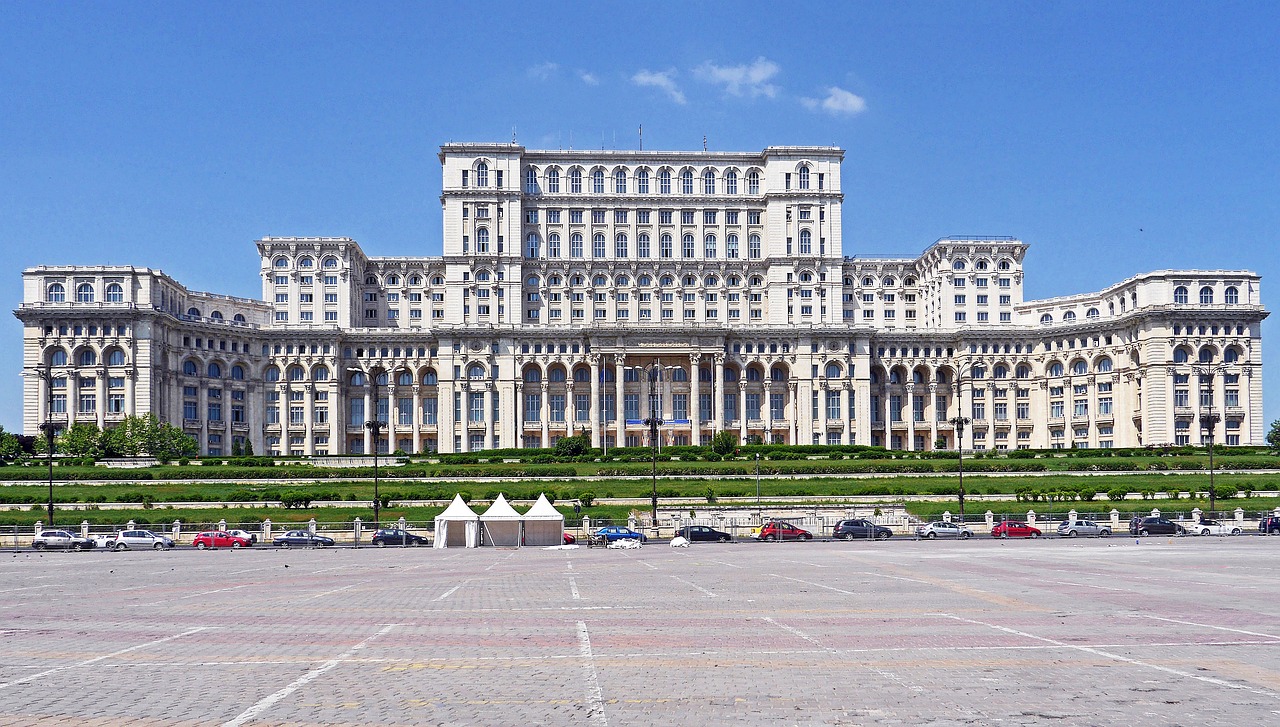
Historical Examples of Totalitarian Regimes
When we think about totalitarianism, it's hard not to picture the oppressive regimes that have left indelible marks on history. From the chilling streets of Nazi Germany to the iron grip of Stalinist Russia, these regimes did not just influence their own citizens; they resonated throughout the world, shaping political thought and social dynamics for generations. Understanding these examples is crucial, as they reveal the dangerous potential of unchecked power and the philosophical justifications that can lead societies down a dark path.
In both cases, we see a common thread: the manipulation of ideology to consolidate power. Totalitarian regimes often rise on the back of a perceived crisis, promising stability and security in exchange for personal freedoms. This is not just a political maneuver; it is a philosophical stance that seeks to justify the means by the ends. Let's dive deeper into these historical examples to understand how they operationalized philosophical ideas.
Nazi Germany serves as a stark reminder of how philosophical justifications can be twisted to serve totalitarian ends. The regime, under Adolf Hitler, did not merely rely on brute force; it crafted a narrative steeped in racial ideology. The Nazis rejected the Enlightenment values of reason and equality, instead promoting a worldview that prioritized the so-called Aryan race. This was not just a political stance; it was a deeply ingrained philosophy that justified the subjugation and extermination of entire groups deemed "undesirable."
One of the most chilling aspects of Nazi ideology was its ability to dehumanize individuals, reducing them to mere components of a collective. This was evident in the infamous Nuremberg Laws, which stripped Jews of their rights and citizenship, effectively erasing their individuality. The regime's propaganda machine worked tirelessly to instill a sense of superiority among Aryans, while simultaneously fostering hatred and fear towards others. The result? A society where dissent was not just discouraged; it was annihilated.
On the other side of the spectrum, we have Stalinist Russia, where Marxist-Leninist thought was interpreted in a way that led to a brutal totalitarian state. Initially, the promise of a classless society was enticing, but as Stalin rose to power, the reality became a far cry from the ideology. The state, under Stalin, became synonymous with oppression, utilizing the concept of class struggle to justify authoritarian rule.
The philosophical contradictions in Stalin's regime were glaring. While Marx envisioned a society where the proletariat would rise against the bourgeoisie, Stalin's interpretation led to the purging of perceived enemies within the Communist Party and society at large. The infamous Great Purge serves as a haunting example of how the state turned against its own people, with millions executed or sent to labor camps. Here, we see how a philosophy meant to liberate became a tool of oppression.
| Regime | Philosophical Justification | Key Features |
|---|---|---|
| Nazi Germany | Racial Ideology | Suppression of dissent, propaganda, genocide |
| Stalinist Russia | Marxist-Leninism | Purge of political rivals, labor camps, state control |
These historical examples remind us of the fragility of freedom and the potential for philosophy to be misused. As we reflect on these regimes, we must ask ourselves: how can we ensure that history does not repeat itself? Understanding the philosophical underpinnings of totalitarianism is a vital step in safeguarding our freedoms and promoting a society where individual rights are respected and cherished.
- What is totalitarianism? Totalitarianism is a political system where the state holds total authority over the society and seeks to control every aspect of public and private life.
- How do totalitarian regimes justify their actions? They often manipulate ideologies to create a narrative that justifies oppression, claiming it is for the greater good or security of the state.
- What are some characteristics of totalitarian regimes? Key features include a single-party rule, suppression of dissent, propaganda, and extensive surveillance of the population.
- Can totalitarianism arise in democratic societies? Yes, totalitarianism can emerge if democratic institutions are weakened and public trust is eroded, often through fear and manipulation.

Case Study: Nazi Germany
The rise of Nazi Germany stands as a chilling example of how philosophical justifications can be twisted to support a totalitarian regime. Under Adolf Hitler, the regime employed a complex web of ideological narratives that interwove notions of racial superiority, nationalism, and anti-Enlightenment sentiments. Central to this ideology was the belief in the supremacy of the Aryan race, which was not merely a social construct but was presented as a philosophical truth that warranted the subjugation and annihilation of those deemed inferior. This warped interpretation of Darwinism, combined with a rejection of Enlightenment principles such as individual rights and rational discourse, created a fertile ground for totalitarian practices.
One of the most significant philosophical justifications for the Nazi regime was the concept of the "Volksgemeinschaft," or people's community. This idea emphasized the unity of the German people as a singular entity, often at the expense of individual rights. The state, in this view, was not just a governing body but a living organism that required complete loyalty and sacrifice from its members. The emphasis on collective identity over individual freedom mirrored Hegelian ideals but took them to an extreme, where dissent was not merely discouraged but violently suppressed. The Nazis used propaganda to promote this ideology, creating a narrative that painted the regime as the protector of the nation against perceived threats, thus justifying their authoritarian measures.
Moreover, the Nazi regime's philosophical underpinnings were reinforced through a systematic campaign of indoctrination. Education became a tool for propagating totalitarian ideals, with curricula designed to instill loyalty to the Führer and the state. The regime sought to control not only the political sphere but also cultural and social life, aiming to eliminate any form of dissent or alternative viewpoints. This control extended to art, literature, and even science, with the regime promoting works that aligned with their ideology while banning those that did not. The infamous book burnings of 1933 serve as a stark illustration of this effort to erase dissenting voices and create a homogeneous cultural landscape.
In practice, the totalitarian nature of Nazi Germany was evident in its brutal enforcement of conformity. The Gestapo, the secret police, operated with a mandate to root out opposition, employing fear and violence as tools of control. The regime's policies led to the establishment of concentration camps, where millions were imprisoned, tortured, and murdered. This systematic dehumanization was justified through a philosophical lens that viewed certain groups—Jews, Roma, disabled individuals, and political dissidents—as threats to the purity and strength of the Aryan race. In this way, the Nazis not only created a narrative that legitimized their actions but also positioned themselves as the architects of a new societal order.
In conclusion, the case of Nazi Germany illustrates how philosophical ideas can be manipulated to justify extreme forms of governance. By intertwining notions of race, nationalism, and collective identity, the regime crafted a narrative that not only supported its totalitarian practices but also resonated deeply with many Germans at the time. The lessons from this dark chapter of history serve as a reminder of the power of ideology in shaping political realities and the dangers of allowing philosophical thought to drift into the realm of authoritarianism.
- What were the main philosophical ideas that supported Nazi ideology?
The Nazi ideology was primarily supported by concepts of racial superiority, nationalism, and the idea of a unified people's community, which emphasized loyalty to the state over individual rights. - How did the Nazi regime suppress dissent?
The regime used propaganda, education, and violent enforcement through the Gestapo to suppress dissent, creating an atmosphere of fear and conformity. - What role did propaganda play in Nazi Germany?
Propaganda was crucial in promoting the regime's ideological narratives, shaping public perception, and justifying the totalitarian measures taken against perceived threats. - How did Nazi Germany's practices reflect totalitarianism?
The regime's practices reflected totalitarianism through the concentration of power, suppression of dissent, and control over various aspects of life, including culture, education, and personal freedoms.

Case Study: Stalinist Russia
When we talk about Stalinist Russia, we’re diving into a complex tapestry of ideology and practice that transformed the Soviet Union under Joseph Stalin's rule from the mid-1920s until his death in 1953. This period is often characterized by the intense application of Marxist-Leninist thought, which was manipulated to justify a series of authoritarian measures that contradicted the very principles of the revolution it claimed to uphold. It's fascinating to see how the ideas of Karl Marx were twisted to fit a narrative that ultimately led to oppression and widespread fear.
At the heart of Stalin's governance was the notion of a classless society. Marx envisioned a world where the proletariat would rise against the bourgeoisie, leading to a society free from class distinctions. However, in Stalin's hands, this idea morphed into a justification for the elimination of perceived enemies of the state. The famous phrase "dictatorship of the proletariat" became a tool for consolidating power rather than liberating the working class. Instead of empowering the masses, Stalin's regime often resorted to brutal purges and widespread surveillance to maintain control.
One of the most striking aspects of this period was the use of state terror. The Great Purge of the late 1930s serves as a chilling example of how philosophical underpinnings can lead to real-world atrocities. Millions of people were executed or sent to labor camps, often based on flimsy accusations of treason or counter-revolutionary activities. This reign of terror was justified through a warped interpretation of Marxist ideology, where the state was seen as the ultimate arbiter of justice, and individual rights were sacrificed at the altar of collective goals.
Furthermore, the concept of collectivization in agriculture was another significant policy that illustrated the philosophical contradictions inherent in Stalin's regime. The idea was to consolidate individual landholdings into collective farms, ostensibly to increase agricultural productivity and eliminate the kulaks, or wealthy peasants. However, this policy led to widespread famine, particularly the devastating Holodomor in Ukraine, where millions starved to death. The justification for such drastic measures was couched in the language of revolution, but the human cost was staggering.
In examining the philosophical contradictions of Stalinist Russia, we see a regime that claimed to be working towards a utopian society while simultaneously engaging in practices that were anything but liberating. The manipulation of Marxist thought to justify authoritarianism serves as a potent reminder of how ideologies can be co-opted to serve the interests of those in power, often at the expense of the very people they claim to represent.
To encapsulate the essence of Stalinist philosophy, we can summarize its key aspects in the following table:
| Key Aspect | Description |
|---|---|
| State Terror | Widespread purges and executions to eliminate dissent. |
| Collectivization | Forced consolidation of farms leading to famine and suffering. |
| Philosophical Manipulation | Twisting Marxist ideals to justify authoritarian rule. |
| Suppression of Individual Rights | Prioritizing state goals over personal freedoms and rights. |
This case study of Stalinist Russia not only highlights the dangers of totalitarianism but also serves as a cautionary tale about the power of ideology when wielded by those who seek absolute control. It raises important questions about the relationship between philosophy and governance, and how the ideals of liberation can be perverted into instruments of oppression.
- What was the main ideology behind Stalinism? Stalinism was primarily rooted in a distorted interpretation of Marxism-Leninism that emphasized state control and the elimination of perceived enemies.
- How did Stalin justify his policies? Stalin justified his policies through the rhetoric of revolution, claiming they were necessary for the establishment of a classless society.
- What were the consequences of collectivization? Collectivization led to widespread famine, particularly in Ukraine, resulting in millions of deaths and suffering.
- How did state terror manifest during Stalin's rule? State terror manifested through purges, show trials, and mass executions aimed at removing dissent and consolidating power.
Frequently Asked Questions
- What is totalitarianism?
Totalitarianism is a political system where the state holds absolute power and seeks to control every aspect of public and private life. It often involves the suppression of dissent, strict regulation of the economy, and pervasive propaganda. Think of it as a puppet master pulling all the strings, leaving no room for individual freedom or expression.
- How does philosophy influence totalitarian regimes?
Philosophical ideas, especially those from thinkers like Hegel and Marx, provide the intellectual basis for totalitarianism. Hegel's emphasis on the state over the individual and Marx's focus on class struggle can be twisted to justify authoritarian rule. It's like using a map to navigate through a twisted maze, where the original path of freedom gets lost in the complexity of power dynamics.
- Can you give examples of historical totalitarian regimes?
Certainly! Notable examples include Nazi Germany under Adolf Hitler and Stalinist Russia. In both cases, philosophical justifications were used to legitimize extreme measures, from racial purity laws to purges of perceived enemies. These regimes illustrate how theory can morph into practice in the most chilling ways, often leading to catastrophic consequences.
- What role did Hegel play in shaping totalitarian thought?
Hegel's ideas about the state and individual freedom significantly impacted totalitarianism. He viewed the state as the embodiment of ethical life, suggesting that individual rights are secondary to the collective good. This perspective can easily be manipulated to justify oppressive governance, where the state’s needs overshadow personal freedoms, much like a lion overshadowing a tiny mouse.
- How is Marxism related to totalitarianism?
Marxism can contribute to totalitarian ideologies through its focus on class struggle and the idea of a revolutionary state. While Marx envisioned a classless society, in practice, leaders have often used this concept to justify authoritarian control, claiming it's necessary to protect the revolution. It’s a classic case of 'the road to hell is paved with good intentions.'
- What are the implications of totalitarianism on society?
Totalitarianism can lead to widespread human rights abuses, loss of personal freedoms, and a culture of fear. It stifles creativity and dissent, making society stagnant and oppressive. Imagine living in a world where every thought is monitored and every action is controlled—it's a recipe for despair rather than progress.



